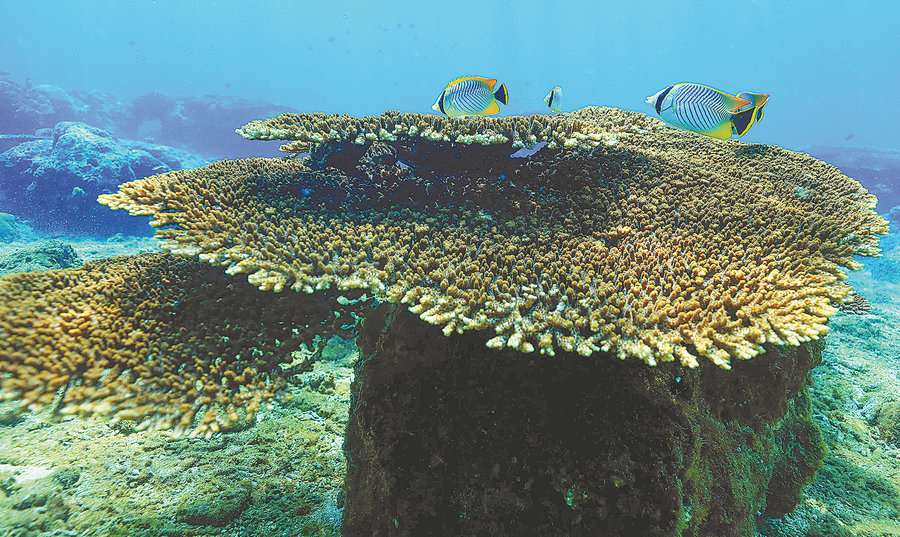Marine conservation a common cause: China Daily editorial


The white paper on "Marine Eco-Environmental Protection in China" that the State Council Information Office issued on Thursday undoubtedly shows China's commitment to carrying out all-round cooperation to protect the marine ecology and environment.
The professionalism and objectivity of the fact-based document, jointly compiled by the Ministry of Natural Resources, Ministry of Ecology and Environment, State Oceanic Administration and some other departments, is clear to see. The white paper clearly outlines the achievements China has made in marine ecological conservation and environmental protection since 2012 and shares its workable experience as well as some lessons that have been hard-learned.
It makes clear that China regards the ocean as a bond with other countries and a valuable resource asset of a community with a shared future. Marine eco-environmental protection should be a common cause of all countries, including inland ones, rather than being weaponized by some for their geopolitical games.
China attaches great importance to the marine eco-environment, and it has introduced strict management systems and laws on marine eco-environmental protection, giving equal attention to protection, pollution prevention and control, and restoration. It has effectively improved its marine eco-environment through land-sea coordination and by increasing river-sea connectivity.
In order to alleviate the impact of land-sourced pollution on the marine environment, China has adopted robust measures to coordinate land-sea pollution control and monitor the key pathways that channel land-sourced pollutants into the sea. Through comprehensive governance of key sea areas, land-sea coordination in pollution control, and building beautiful bays, China's nearshore water quality has improved. In 2023, the proportion of sea areas with good to excellent water quality saw a 21.3 percentage points increase from 2012.
China will continue to support and assist to the best of its ability other developing countries in addressing marine eco-environmental issues through various means. The land-sea coordination and the river-sea connectivity mechanism China has explored should be of reference value for the developing countries to minimize their extensive growth model's negative influences on the marine eco-evironment, avoiding the costly treatment-after-pollution development curve that some parts of China have experienced.
Upholding multilateralism, China is committed to the vision of a maritime community with a shared future, and conducts in-depth mutually beneficial cooperation with the international community through multiple channels and in various forms, developing blue partnerships through an open and pragmatic approach.
On this new journey, as the white paper said, China will continue to champion the new development philosophy, promote eco-environmental progress, and build a marine eco-environment underpinned by harmony between humans and the sea.
Embracing the vision of a better world through cooperation and mutual benefit, China is contributing to the building of a global maritime community with a shared future through concrete actions. It is ready to work with other countries to lay the foundation for a marine eco-civilization, pursue green development of the sea, and build a cleaner and more beautiful world where oceans serve as a permanent home for humans to live and thrive.
As the white paper states, marine issues are global issues, and protecting the marine eco-environment is a common concern for people all over the world. It is the responsibility of all countries to protect and improve the marine environment and to conserve and use marine resources in a sustainable way.
That should preclude attempts to sabotage or undermine China's cooperative outreach to its neighbors on marine eco-environmental protection.
































